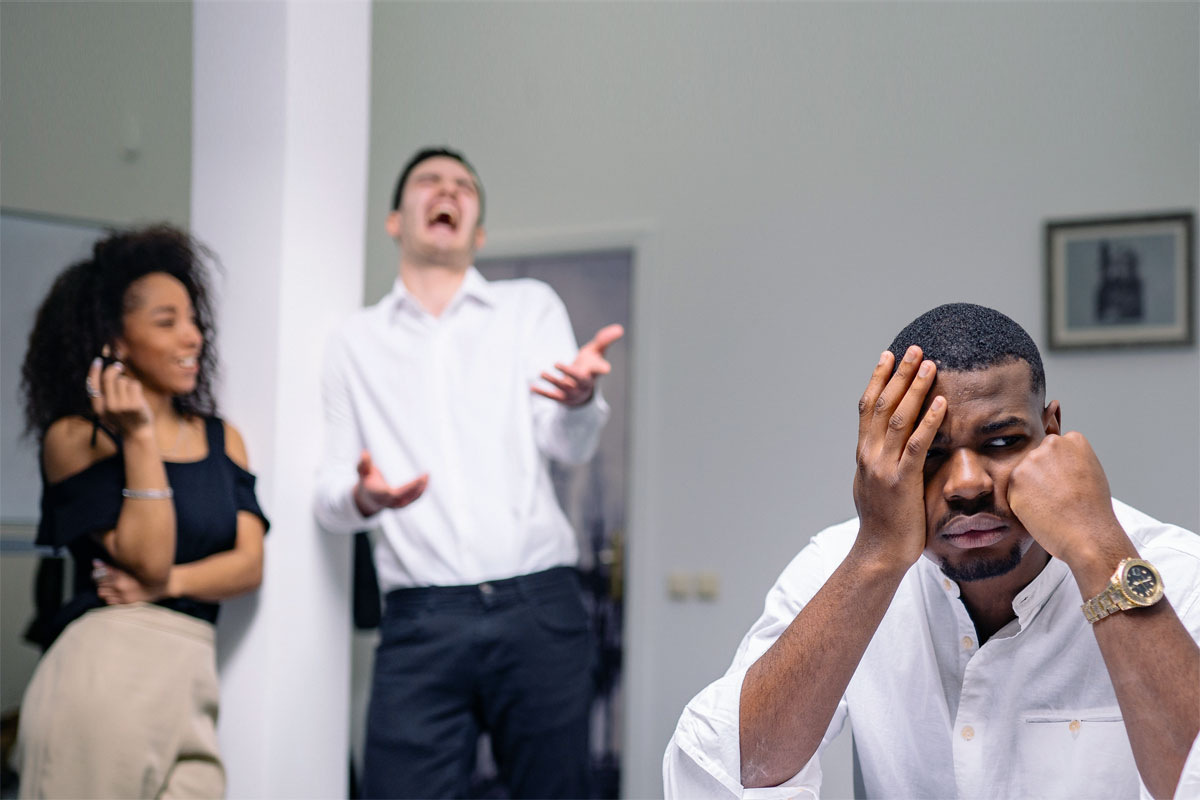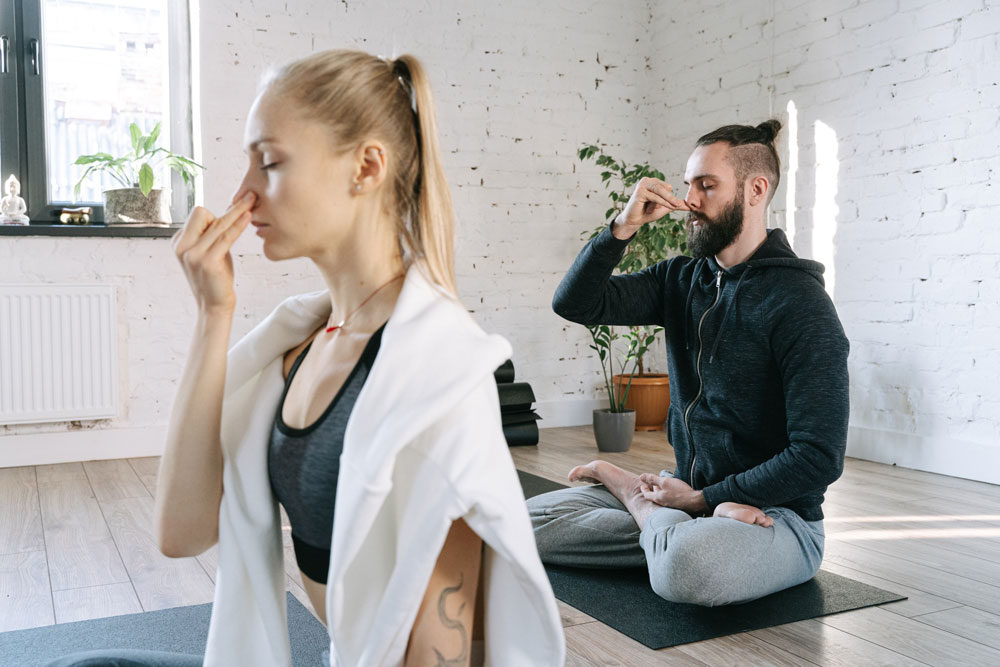
Moving into recovery is a big step and one that can be extremely important for your long-term health. However, it means dealing with life and people without social lubricant, without drugs and alcohol to reduce stress, and without a barrier between you and the world. In many ways, that’s a great thing because you get to have genuine and meaningful connections, to meet new people, and to feel supported, connected, and part of the group. You’ll never get that while high on drugs or alcohol. At the same time, you’ll face anxiety, worry, and possibly even panic. You might have trouble getting into new groups. You might worry what people will think and how they think about you.The good news is that people are never as judgmental or as bad as our worries make them out to be. But, you’ll have to take steps to deal with social anxiety and stress at those social events so you can get over the hill of that early recovery anxiety. The following include some ways you can start doing that.
Journal Your Anxiety
If you’re anxious about a social event, it’s important to understand why. Taking time to write down your worries can give you insight into what those worries are about and what steps you can take to feel better.
This is a very proactive approach and depending on how bad your anxiety is, you might want or need support to do it. However, if you write reasons down, you can then write out what steps you can take to fix the issue. For example:
- I am anxious that I won’t know anyone and won’t have anyone to talk to = take steps to talk to a stranger and hit off conversation
- I am anxious that I will see alcohol and will want to drink = talk to your host about helping you stay away from alcohol
- I am anxious about people judging me = take steps to acknowledge that you’re mostly judging yourself and that if you work through guilt associated with yourself, you’ll probably feel better
Of course, most of those aren’t simple one-step solutions.
Other forms of anxiety are more general and are harder to name or to do anything about.
- Being around large groups of people makes me feel anxiety even though I know nothing is wrong = build up positive experiences around larger groups so that you can feel less anxious
- I am afraid I will do something wrong and people will laugh at me = work on understanding that most people don’t care what you are doing at any given point
- I simply feel anxiety = work on stress management techniques

None of these steps will cure anxiety. However, they can help you to reduce it.
Understand Your Triggers
If you know what your triggers for using are, you can take steps to make life easier for yourself. For example, if you know that being alone in a crowded room makes you feel bad, you can take steps to have a friend or colleague with you. If you know that being around alcohol is a trigger, you can try to avoid events with alcohol for a bit longer. Triggers can be how people react, past events, and any situation of stress, so they can vary quite a bit from person to person.
Working to understand what causes anxiety or triggers you to want to drink can help you to better compensate for those situations.
Get Your Questions Answered
Our expert & caring staff on site are available 24/7. Call us today.
Learn Stress Management Techniques

Good stress management techniques can do a lot for reducing anxiety in the moment. Unfortunately, many of them take some time to learn. For example, Mindfulness-based Stress Reduction Therapy is extremely popular, but typically takes several months. However, it will help you to ground yourself and focus on recovery.
Some good stress management techniques include:
- Take 5-10 minutes and do a breathing exercise
- Practice mindfulness
- Give yourself a hand massage
- Take 10 minutes to play a difficult game on your phone that requires attention
- Ask for a hug
- Focus your attention
- Actively work to get rid of the stress factor in question
In most cases, you’ll want to focus on learning stress management techniques with your counselor or therapist, so they can help you to create positive experiences specific to what you’re going through right then.
Practice Preventive Self-Care
Ensuring that you’re in as good of a mental and physical state as possible will help you to reduce anxiety during a social event. However, that takes time and the fact that you’re in recovery may be against you there. For example, many people experience significant issues with nutritional deficiencies when leaving addiction. That’s because drugs and alcohol actively harm the gastrointestinal tract, preventing you from getting the nutrition you need. That can make stress and anxiety worse.
In addition, you’ll want to:
- Exercise 30-60 minutes per day, 4-5 days per week
- Eat healthy food about 80% of the time
- Get enough sleep and take steps to ensure it’s high-quality sleep by avoiding phones and keeping a sleep routine
- Engage in social events and spend time around people who make you feel good
- Keep your home and space clean so you experience less stress leaving
- Take steps to avoid stress when going places, such as by ensuring you won’t be late, making plenty of time, and planning well.
Preventive self-care is about improving your health, giving yourself the space and mindset to approach things without anxiety, and actively working to reduce stress in your daily life. That will reduce the amount of anxiety you feel at social events, while helping your recovery, and giving you a better threshold to deal with anxiety at social events.
Eventually if you stress at social events, chances are, you may just have to learn to deal with it. That may involve going to therapy, it may mean getting counseling, and it may mean working to build as many positive experiences as you can to reduce the overall impact of that anxiety. However, taking care of yourself around social events, ensuring that you can reduce stress as much as possible, and learning good short-term coping mechanisms will help. It may also be important to have a sponsor or support person on call so you can talk to them if you need to.
Navigating life in early recovery is harder than at most other points in your life. However, you should be able to take steps to improve that, which will impact your recovery and the rest of your life around it.
If you or your loved-one struggles from alcoholism or other substance abuse please contact us today and speak with one of our experienced and professional intake advisors about our detox, partial hospitalization, and residential treatment programs. 10 Acre Ranch also has specialty tracks like our pet friendly drug rehab and couples substance abuse treatment programs. We’re here to help you recover.






